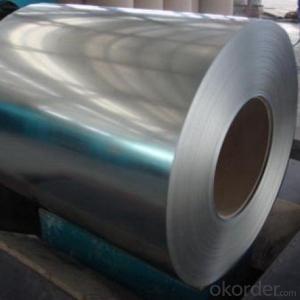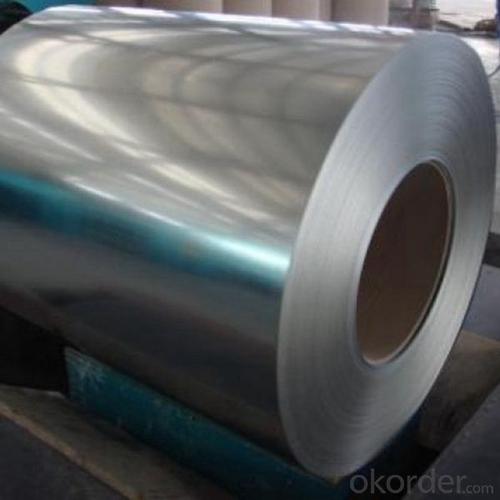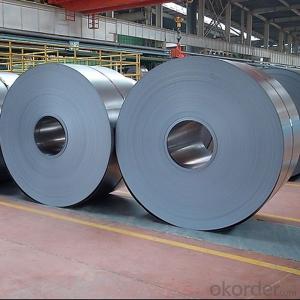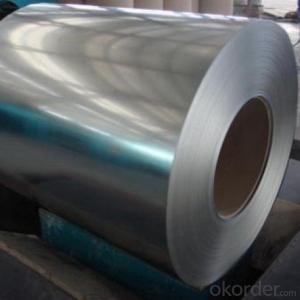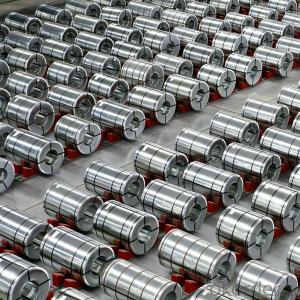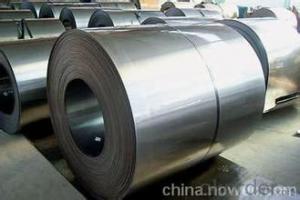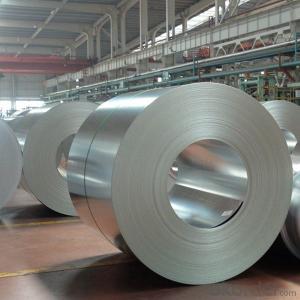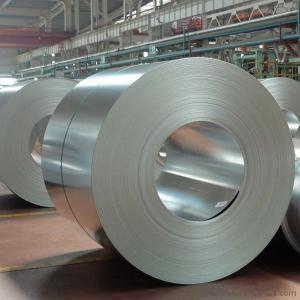Steel Plate Grade 300 Series High Quality Made in China
- Loading Port:
- Shanghai
- Payment Terms:
- TT OR LC
- Min Order Qty:
- 28 m.t.
- Supply Capability:
- 10000 m.t./month
OKorder Service Pledge
OKorder Financial Service
You Might Also Like
Specification
Description for Stainless Steel Coils/Sheets:
Prodcut:Stainless Steel Coil
Thinckness: 0.20mm-8.0mm
Width:1000mm, 1219mm(4 feet), 1250mm, 1500mm, 1524mm(5 feet),
1800mm, 2000mm, 2200mm, 2500mm,and customizable
Ni:0.8~1.2% Cu:1.4~1.5% Cr:14
Standard: ASTM, JIS, GB, BS, DIN etc
Grade: 200series&300series&400series
Surface finish: 2B, BA, 8K, 6K, Mirror Finished, No1, No2, No4, Hair Line with PVC
Manufacture technology: cold rolled/hot rolled
Thickness Tolerance: +/-0.1mm
Width Tolerance: +/-10mm
200 Seriers: 201,202
300 Seriers: 301, 304, 304L, 316L, 309, 310S,321
400 Seriers: 410, 410S, 409L,430
Features of Stainless Steel Coils
(1)Good ductility
(2)Good corrosion resistance
(3)Excellent abrasion resistance and fatigue strength
(4)Good weldability
(5)Oxidation resistant performance
(6)Excellent in high temperature
Our Service
1.High quanlity and reasonable price.
2.Customized on-demand.
3.Reasonable shipping and fast delivery.
4.Free sample.
Specifications for Stainless Steel Coils/Sheets:
Application for Stainless Steel Coils/Sheets:
Boiler heat exchanger, machinery andpetroleum ,chemical industries, hardware fields,Food industry,construction material,kitchen utensils, building construction, medical equipment,chemical tank, pipe etc
Application of Stainless Steel Coils
(1)Boiler heat exchanger,
(2)Chemical industries,
(3)Hardware fields,
(4)Construction material,
(5)Kitchen utensils,
(6)Building construction,
(7)Medical equipment,
(8)Chemical tank,
(9)Pipe etc
Detail picture for Stainless Steel Coils/Sheets
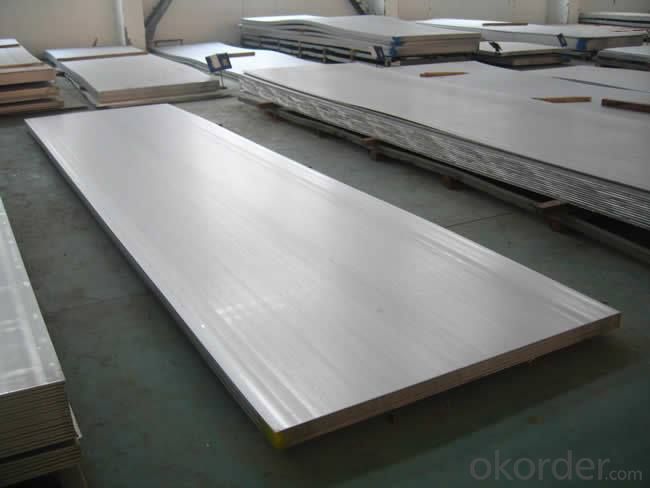
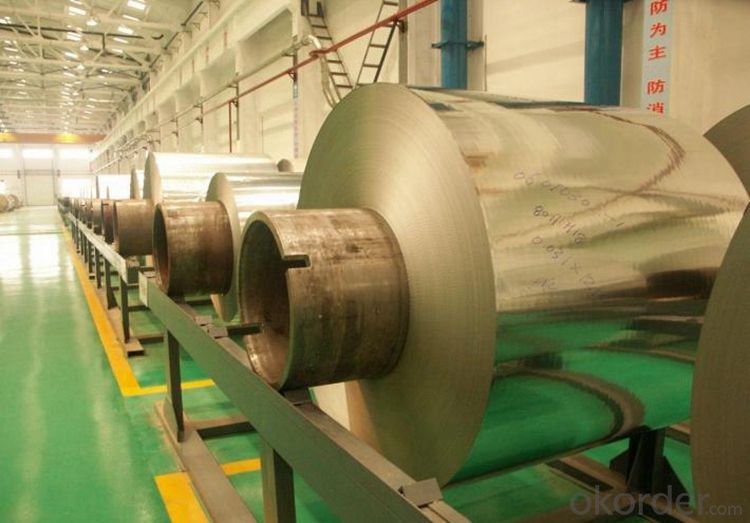
Export Markets for Stainless Steel Coils/Sheets:
Our target market is the international market. Every year we export most of products to countries like India, Pakistan, South Korea, Brazil, Australia, South Africa, Spain, Sri Lanka, Taiwan, Hong Kong, etc.
FAQ for Stainless Steel Coils/Sheets:
Q: How can I get the samples?
A: If you need some samples to test ,please pay for the transportation freight of samples and our samples are free for you.
Q: How can I get your price list?
A: Please send us your email or fax and order information – Quantity, Specification (steel type, thickness, width, surface finish), then I can send you the price list.
- Q: What are the main characteristics of galvanized steel coils?
- The main characteristics of galvanized steel coils include their high corrosion resistance, durability, and ability to withstand extreme weather conditions. They are also known for their excellent formability, making them suitable for various applications in construction, automotive, and manufacturing industries. Additionally, galvanized steel coils have a smooth and shiny appearance due to the zinc coating, which provides aesthetic appeal along with enhanced protection against rust and other damages.
- Q: How are steel coils formed into specific shapes?
- Steel coils are formed into specific shapes through a process called roll forming, which involves passing the coils through a series of rollers. The rollers gradually shape the steel into the desired profile, applying pressure and bending it to the required angles. This allows manufacturers to create various shapes and sizes of steel coils for different applications.
- Q: How are steel coils used in the production of building systems?
- Steel coils are used in the production of building systems as they provide a cost-effective and versatile material for various construction applications. These coils are often processed and shaped into different components, such as beams, columns, and roofing materials, to meet the structural requirements of buildings. The strength and durability of steel make it an ideal choice for constructing high-rise buildings, industrial facilities, and other structures that require stability and longevity.
- Q: What is the difference between steel coils and steel sheets?
- Steel coils and steel sheets are both forms of steel, but they have distinct differences. Steel coils refer to a long, continuous roll of steel that is wound up into a coil shape. These coils are usually produced at a steel mill and are typically used for further processing or manufacturing purposes. Steel coils are commonly used in various industries such as automotive, construction, and appliance manufacturing. They are often used to produce different products like pipes, tubes, and automotive parts. On the other hand, steel sheets are flat pieces of steel that are typically cut from steel coils. These sheets are available in various sizes and thicknesses, making them versatile for different applications. Steel sheets are commonly used in construction projects, such as roofing, siding, and structural components. They are also used in manufacturing processes, such as stamping, forming, and fabrication of various products. One key difference between steel coils and steel sheets is their shape and form. Steel coils are in a rolled, cylindrical form, while steel sheets are in a flat, rectangular shape. This difference in shape makes steel coils more suitable for continuous production processes, while steel sheets are used for specific applications that require flat surfaces. Another difference is the handling and transportation of these steel forms. Steel coils are typically transported and stored using special equipment, such as coil cars or cranes, due to their large size and weight. Steel sheets, on the other hand, can be easily stacked, transported, and stored using conventional methods. Lastly, the processing requirements of steel coils and steel sheets differ. Steel coils often undergo additional processing steps, such as slitting, cutting, or coating, to meet specific customer requirements. Steel sheets, on the other hand, may require minimal processing before being used in their intended applications. In summary, steel coils and steel sheets differ in their shape, handling, transportation, and processing requirements. Steel coils are rolled, cylindrical forms used for further processing, while steel sheets are flat pieces cut from coils and used for specific applications. Understanding these differences is crucial in selecting the appropriate steel form for a particular project or manufacturing process.
- Q: How are steel coils used in the manufacturing of agricultural trailers?
- Steel coils are used in the manufacturing of agricultural trailers to provide strength, durability, and stability to the trailer's frame, ensuring it can withstand heavy loads and harsh working conditions. These coils are typically shaped and welded to create the trailer's structural components, such as the chassis, sidewalls, and flooring. Additionally, steel coils can be cut and formed into various parts, including axles, suspension systems, and hitch assemblies, to further enhance the trailer's performance and functionality in agricultural operations.
- Q: How are steel coils used in the shipbuilding industry?
- Steel coils are used in the shipbuilding industry for various purposes, including the construction of the ship's hull, decks, and other structural components. These coils are typically cut, shaped, and welded together to form the desired sections and structures of the ship. Additionally, steel coils are also used for the fabrication of equipment and machinery required for the ship's operation, such as engine components and piping systems. The high strength and durability of steel make it an ideal material for shipbuilding, ensuring the ships are capable of withstanding the harsh marine environment.
- Q: i would like to know of any companies who buy shredded scrap steel
- We are one of the biggest steel mills in Asia. Under our group, we have steel mills in Thailand and Bangladesh. On the monthly basis, we purchase steel scrap HMS1/2 80:20 and the shredded ISRI210/211, ISRI211 by bulk and 20' container to Thailand and Bangladesh. Due to the limitation of our existing shredded steel scrap supplier, we need to get more supply of the shredded. Please contact us or offer us of ISRI 210/211 or ISRI211 CFR Chittagong, Bangladesh with 500mt - 2000mt per shipment by 20' container. If any questions, please feel free to contact us.
- Q: How are steel coils used in the manufacturing of agricultural irrigation systems?
- Steel coils are used in the manufacturing of agricultural irrigation systems as they are shaped and formed into various components such as pipes, tubes, and fittings. These coils provide strength, durability, and corrosion resistance, ensuring the longevity and reliability of the irrigation system.
- Q: What are the factors that determine the price of steel coils?
- The factors that determine the price of steel coils include the current demand and supply levels in the market, the cost of raw materials and energy, the production and labor costs, transportation and logistics expenses, market competition, government policies and regulations, as well as currency exchange rates.
- Q: I want to know where cold formed steel framing is used, is every steel frame we see in a construction sites like houses, building and bridges cold formed steel frames? or hot formed steel framing?I also read that cold formed steel framing is used for floors, is the steel frame beneath the floor's concrete cover?Thank u very much!!
- Abeer: I'm a civil/structural engineer. Cold-formed (or rolled) steel framing is typically limited to facades, studs in lightly-loaded bearing walls and non-load bearing wall studs. Hot-rolled steel members are typically used to frame steel buildings and bridges. See the article below on cold-formed steel framing.
Send your message to us
Steel Plate Grade 300 Series High Quality Made in China
- Loading Port:
- Shanghai
- Payment Terms:
- TT OR LC
- Min Order Qty:
- 28 m.t.
- Supply Capability:
- 10000 m.t./month
OKorder Service Pledge
OKorder Financial Service
Similar products
Hot products
Hot Searches
Related keywords
